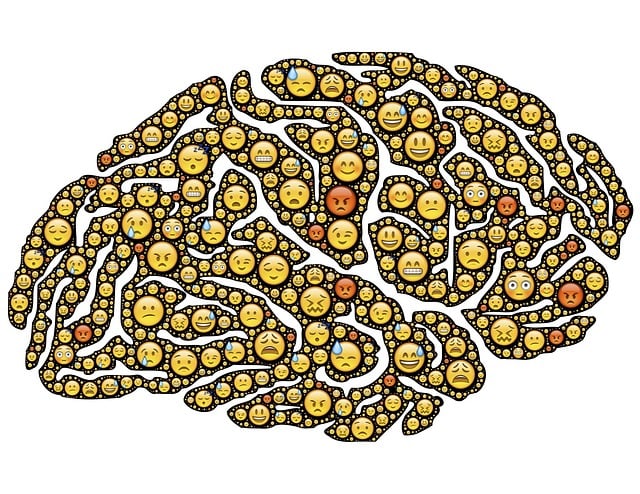Mental health advocacy initiatives, such as Castle Rock Psychosis Therapy, play a pivotal role in reshaping public perceptions and fostering support for individuals dealing with mental health issues. Through comprehensive programs like education, workshops, campaigns, and personal storytelling, these initiatives combat stigma, encourage early intervention, and promote help-seeking behaviors. By focusing on building inner strength, resilience, and policy changes to enhance access to services, advocacy groups create a society that prioritizes emotional well-being. Castle Rock's holistic approach combines evidence-based practices with individualized treatment, empowering clients with essential coping strategies and improving their quality of life. Community engagement, open dialogue, and awareness campaigns, especially for challenging conditions like psychosis, are key to these initiatives' success, ultimately enhancing overall community well-being.
Mental health advocacy initiatives play a crucial role in fostering understanding and support for individuals facing mental health challenges. This article explores three key aspects of advocacy, beginning with an examination of Castle Rock Psychosis Therapy, a model program for serious mental illness. We then delve into strategies for building community engagement, highlighting effective tactics for mental health advocates. By increasing awareness and implementing successful programs like Castle Rock Psychosis Therapy, we can create a more inclusive society that prioritizes mental wellness.
- Understanding Mental Health Advocacy: The Need for Awareness and Support
- Castle Rock Psychosis Therapy: A Model Program for Serious Mental Illness
- Building Community Engagement: Strategies for Effective Mental Health Advocacy Initiatives
Understanding Mental Health Advocacy: The Need for Awareness and Support

Mental Health advocacy initiatives play a pivotal role in shaping public understanding and support for individuals facing mental health challenges, such as Castle Rock Psychosis Therapy. These efforts are crucial in dismantling the stigma surrounding mental illness and fostering an environment where people feel empowered to seek help. By increasing awareness through educational programs, workshops, and campaigns, communities can promote emotional well-being and encourage early intervention.
Advocacy initiatives often focus on inner strength development, teaching individuals coping strategies and resilience. They also work towards Mental Illness Stigma Reduction Efforts by sharing personal stories, organizing support groups, and engaging in policy changes to ensure better access to mental health services. These collective actions are essential in creating a society that prioritizes emotional well-being promotion techniques for all.
Castle Rock Psychosis Therapy: A Model Program for Serious Mental Illness

Castle Rock Psychosis Therapy stands as a beacon of hope for individuals grappling with severe mental illness. This innovative program emphasizes holistic care, integrating evidence-based practices like Compassion Cultivation and Emotional Intelligence to address not just symptoms but also underlying causes. By fostering a supportive environment, Castle Rock goes beyond traditional therapy, providing Crisis Intervention Guidance tailored to each client’s unique needs.
The program’s success lies in its approach that cultivates resilience and empowerment. Through individualized treatment plans, clients are equipped with coping strategies, enhanced emotional regulation skills, and the confidence to navigate life’s challenges. By focusing on both psychological and social aspects of recovery, Castle Rock Psychosis Therapy offers a comprehensive framework that paves the way for lasting mental wellness and improved quality of life.
Building Community Engagement: Strategies for Effective Mental Health Advocacy Initiatives

Mental health advocacy initiatives thrive on community engagement, fostering open dialogue and raising awareness about mental wellness. Building strong connections within communities, especially those facing unique challenges like psychosis as seen in Castle Rock Psychosis Therapy cases, requires tailored strategies. One effective approach is to leverage cultural sensitivity in mental healthcare practice, ensuring that interventions resonate with diverse populations. By incorporating culturally relevant activities and education, advocates can foster understanding and reduce stigma associated with seeking help.
Additionally, self-esteem improvement and confidence boosting techniques play a vital role. Workshops, support groups, and peer mentoring programs can empower individuals to share their experiences, offering hope and inspiration. These initiatives create safe spaces where people feel heard and validated, encouraging them to actively participate in their mental health journeys. Such inclusive practices not only strengthen community bonds but also lead to more effective advocacy, ultimately enhancing overall well-being.
Mental health advocacy initiatives, such as Castle Rock Psychosis Therapy, play a pivotal role in fostering community engagement and support for individuals grappling with serious mental illness. By implementing effective strategies discussed, from raising awareness to building inclusive environments, we can ensure that no one faces mental health challenges alone. Initiatives like these are not just game changers; they are essential steps towards creating a more empathetic and supportive society, where everyone has access to the resources needed for healing and growth.













